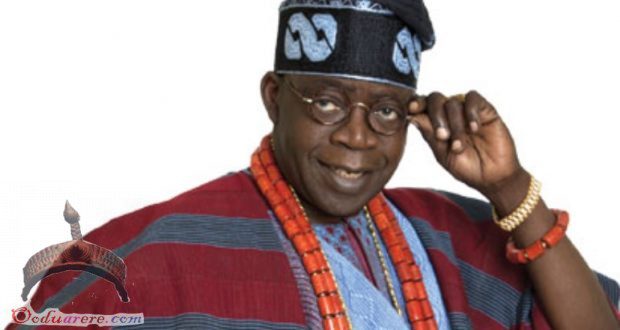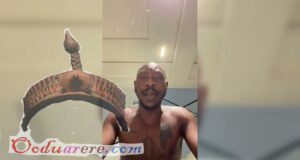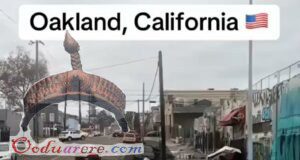When were you arrested?
I said we would continue to struggle until we had democracy. We had a group of 30 Senators called the G-30. The G-30 was determined to actualise the mandate on the floor of the Senate. Suddenly, Abacha came and General Oladipupo Diya and Babagana Kingibe were also running around. Diya was one of the most respected and credible military officers then, and he later approached us that there might be a change in government. Abiola was around. General Chris Alli met us and said there would be a change of government, which would be in favour of June 12, because they were tired of the shenanigans of the ING. That night, Abacha changed the government. He outsmarted everybody.
They met with me, Dele Alake, Segun Babatope and Doyin Abiola. We were asked to write the terms and conditions, which they would broadcast after a change of government. We wrote it and gave it to Diya. They are all alive.
On the night the government was to be changed, Abacha outsmarted everyone and installed himself. These people I mentioned are all alive to testify to what I have said. I can say categorically that I was even called to leave my office because, as they claimed, that night was a dangerous night for them and that everyone’s life might be in danger. Abiola was told not to sleep at home until the broadcast had been made. We were all fooled! Big time deception.
When we heard the broadcast the next day, there was no mention of June 12 and no proclamation of Abiola. I was mad but was still determined. I rushed to Diya and he was still saying that there was no problem and that they were planning to announce the cabinet containing eminent June 12 people. Abiola said what? I said no, announce Abiola’s victory.
Diya told me that I didn’t know the military and that things were not done like that in the military. But I insisted that it was deception. I said I know the military. I called Okadigbo to my office in Lagos and I put the plan before him that we had to confront the military and we had to declare Abacha himself illegal. I got members of our group together; we wrote the script declaring Abacha’s government illegal. Since we could not get to the National Assembly, we opted to hold our session at the Tafawa Balewa Square. We had gotten Dele Alake to be the media coordinator. We told him to get CNN and other foreign media ready. I put the coat of arms on a rod! That was the mace. We created our mace.
We reconvened the Senate here in Lagos and declared Abacha illegal before the international media and others. My colleagues had scattered. After we assembled and drafted the resolution, they still didn’t know where we would hold the session. I told them to relax, this is Lagos. After the broadcast, everybody took off, because the SSS and other security agents were combing everywhere for us. I went underground, using the 090 mobile phones.
I was still granting press interviews to foreign media. The military people were mad. I became a thorn in their flesh and they arrested some of my colleagues, including Abu Ibrahim, the late Polycarp Nwite, Ameh Ebute, and Okoroafor. I was still underground, holding press conferences. The military declared me wanted.
Suddenly they granted bail to the arrested senators. I thought I would be a beneficiary, but I was not. Then, there was a manhunt for me by the police and the SSS. Meanwhile, my late uncle, K.O Tinubu, and the present Oba of Lagos, Oba Akiolu, who was then a police officer, were pressuring me to disclose where I was. My uncle called to ask where exactly I was. I did not disclose my whereabouts. I told Akiolu that even though he is my relative, I would still not tell him where I was since he was a police officer! He said: ‘Ha!’
My uncle advised that the military would kill me if they found me underground and no one would be able to locate my whereabouts. He said it was better I surrendered myself because he wanted me to be alive. I told him that I would call him back and that I was to hold a press conference at the time. And he shouted in amazement: ‘You are holding a press conference when your life is in danger.’ I told him I would surrender, but would not tell him when.
I disguised perfectly, dressed like a malam, and went to the police at Alagbon. The officers didn’t even know me when they saw me. I went in and deposited my phone and my charger. Senator Abu Ibrahim was with us. The officers were wondering why I, a Mallam, could not speak Hausa! I removed my turban, showed up at the front desk, and declared that I had come to surrender. And there was pandemonium among the officers, as to how I got there.
The AIG then was very nice and they put me in the cell. They poured water into the cell room and said, ‘sleep there’. That was the nastiest experience I had within the first 48 hours that I was there. It was on a weekend. I told them I would embark on a hunger strike. The late Anthony Enahoro was on the stairway and Beko Ransome-Kuti was at another angle on the stairway. They brought me out repeatedly for interrogation. They asked me to renounce but I said no, I would not recognise Abacha. They took me and my colleagues to court. People who were supposed to meet their bail conditions were stopped from doing so immediately after they saw me. They canceled everybody’s bail because they could not isolate me.
They gave an order that we should be taken out of court but kept in police custody at Alagbon. They kept about eight of us in a photocopying room, an eight-by-eight room. We were sleeping across one another. It was a matter of the first to sleep would maintain the position. If your head was this way, your leg would be there, and so on. It was a nasty experience.
There were a lot of interrogations, with a lot of carrots and sticks. I can never forget the role and determination and sincerity of a compatriot at that particular time. They made an exception to uphold the earlier bail granted to Senator Abu Ibrahim. He was asked to go. He was the only Hausa-Fulani man with us. The late Hassan Katsina had intervened. But Senator Ibrahim said he would rather stay, except every one of us was granted the same bail conditions. He said he would not leave his colleagues behind.
He is a courageous and detribalised Nigerian, who had a vision of what Nigeria should be. He refused to accept an isolated bail. They started sending emissaries to us in detention, offering us all sorts of appointments and opportunities to renounce our positions, but we refused. The judiciary was still very courageous then. We went to the Court of Appeal. An incident occurred at the lower court. Market women turned out hugely to support us when we were brought to the court. The day they refused my bail, some of the market women appeared naked and so they stopped taking us to the court. The court sessions were usually interesting for us because of the scenes. At Alagbon, we bathed in the open between 4 and 5 a.m.
The condition started improving when they began to bring officials of the failed banks. Those contributed money to repair the generating set at Alagbon and we started enjoying electricity a little longer than we used to. It was during this time that the protest became intense. Nigeria was playing at the World Cup then. Italy defeated Nigeria and the security people lied to us that it was otherwise. Eventually, the Court of Appeal courageously granted us bail in the enforcement of our fundamental human rights. Our passports were confiscated and deposited with the court. Later, the High Court ruled that our passports be released to us.
That night, they finally announced our bail and the conditions attached to it. The presiding judge then is today the Emir of Ilorin, Sulu Gambari. We heard that they put so much pressure on him (Clement Akpamgbo was the Attorney-General) not to release us, but he ordered our release. They were going to re-arrest me and I suddenly went underground to continue my protest.
They would throw bombs and say it was us. Mobil called me to come back to my job, but I refused. They bombed my house, but luckily, my wife and children had been evacuated. I would not want to reveal how they were evacuated because there was diplomatic involvement. They told me that my life and those of my family were in clear danger.
Suddenly, they announced that I was wanted again. They alleged that I was going to bomb the NNPC depot at Ejigbo. Ah! I was still being tried for treason, which carries a sentence of life imprisonment, and I was again accused of trying to bomb an NNPC depot. I couldn’t go back because my photograph was all over the place that I wanted. A diplomatic source advised me that I should leave the country if I wanted to continue the struggle. Dan Suleiman, Alani Akinrinade were in danger. We asked Bolaji Akinyemi to leave the country and promote the struggle at the international level.
That was the National Democratic Coalition then…
Yes. I was at the forefront of the struggle at that level. When I went to see my uncle, K.O Tinubu, at home, he shed tears that night. He said he didn’t want to lose me and that I was about to be killed. He begged me to leave Nigeria and affirmed that being a former police officer, he was sure I would be killed.
He said that I couldn’t return to my house since they had bombed it. I went to a friend’s house. Before then, there was an incident that made them believe that I was at Ore Falomo’s hospital. They went to the hospital to look for me. Eventually, I left Nigeria for the Benin Republic by NADECO route.
How did you make it across the border?
I disguised myself with a huge turban and babanriga and escaped into Benin Republic on a motorbike. My old Hausa friend gave me the clothes to me. In fact, when I appeared to Kudirat Abiola, she didn’t know that I was the one! I gave her some information and some briefing. I left at 1 a.m. While in Benin Republic, I was still coming to Badagry to ferry people and organise and coordinate the struggle with others on the ground. We put a group together, ferrying NADECO people across.
It was a very challenging time. I can’t forget people like Segun Maiyegun and other young guys in the struggle. I would come from Benin to hold meetings with them and sneak back. The military created a whole lot of momentum around me. They took over my house, and guest house and carted away all my vehicles and property to Alagbon. That is why today, I don’t have old photographs. They took eight of my cars away.
My wife and my two toddlers were dropped in a bush; nowhere to go. Beko and the diplomatic missions came to our aid and ferried my wife and kids to the United States. I was still in Benin Republic. Besides, I didn’t have a passport and couldn’t have been able to travel. At a stage, they discovered our routes, because they had spies all over, including the Benin Republic. Twice I was caught and I fortuitously escaped. They traced me to one dingy hotel I was hiding.
The day they came for me at the hotel, I had gone out on an Okada to buy amala at a market, where Yorubas are dominant. I was also to meet Akinrinade and the rest of them. The spies went to the hotel and as I was approaching, I saw two people wearing tajia (skull caps) at the front desk, asking questions. The man attending to them at the reception (I had been very nice to the receptionist) winked at me and I turned back. I contacted a friend in the Benin Republic, who was an architect and had a very strong sympathy for us. Professor Wole Soyinka and Alani Akinrinade, who lodged in a better hotel, were fortunate to have escaped that night, too. The people on their trail pursued them to the hotel but fortunately missed them.
Then the British High Commission got proper information through the Consular-General that my life was in danger. He stamped a visa on a sheet of paper and did a letter, authorising the airline to pick me up from Benin Republic to any port of entry in Britain. I didn’t know how they got to me. A lady just walked up to me and handed me an envelope. She said I had been granted entry into the United Kingdom. She said I could be killed if I failed to leave in the next 48 hours. It was Air Afrique that took me from Benin Republic to London. Meanwhile, my wife was still in the United States. I landed in Britain and worked my way back to the Benin Republic. I picked up my passport from somewhere. I went to an African country and through their connections, they gave me a diplomatic passport as a cultural ambassador.
What country was that?
No, please! The African country that helped us with the diplomatic passport was showing gratitude for the help Abiola had done to its president before. So, you can make your deduction. Then, I was shuffling and coordinating our activities in the UK, Benin Republic, and Cote d’Ivoire. I used my passport to travel to Cote d’Ivoire to hold meetings at the Hotel Continental because we were planning to make another broadcast that would be aired in Nigeria. By the time I returned to the hotel, the military assailants had broken into my hotel room and taken away my briefcase and a diplomatic passport.
They dropped a note, saying: ‘You cannot be twice lucky.’ I was taken over by panic. Fortunately, in my back pocket, I had the photocopy of the sheet of paper on which the British had stamped a visa for me to travel out of Benin previously. I took that to the British High Commission in Abidjan. They listened to my story and asked me to come back at night. They did all their verification and found my story to be true. I returned to them and they gave me another sheet of paper and wrote the number of the flight that would take me out of that country.
But I had no money. Somebody suddenly drove in. The person is a well-known name I don’t want to mention. I met him and explained my condition. He had a traveler’s cheque, but the money was not enough. I went back to the British High Commission and the woman said she could assist me with her money to bridge the shortfall in cash.
We founded and coordinated Radio Kudirat and Radio Freedom and we continued to organise. I didn’t see my family for two good years. They were in America. Bayo Onanuga, who also was part of the struggle, joined us there in December 1997. The law of political asylum stipulates that your first country of landing and acceptance is the safe haven, so it’s not transferable. That was how Cornelius Adebayo was stuck in a United Nations camp. My wife had to invoke a family clause that exists in America to fight for her husband to join her before they granted me a special privilege to leave the UK to join my family in the United States. Announcement Announcements.
I implore everyone to read, digest and post to other platforms so that Asiwaju Bola Ahmed Tunubu’s enemies will know that this man is truly a democrat who fought for the democracy we all enjoy today. He had long paid the price for the PRESIDENCY of this great country. Indeed and in fact Oun lo kan, Bola lo kan, Bola Ahmed Tinubu (BAT) lo Kan.
To God alone be the glory.
 Ọmọ Oòduà Naija Gist | News From Nigeria | Entertainment gist Nigeria|Networking|News.. Visit for Nigeria breaking news , Nigerian Movies , Naija music , Jobs In Nigeria , Naija News , Nollywood, Gist and more
Ọmọ Oòduà Naija Gist | News From Nigeria | Entertainment gist Nigeria|Networking|News.. Visit for Nigeria breaking news , Nigerian Movies , Naija music , Jobs In Nigeria , Naija News , Nollywood, Gist and more









